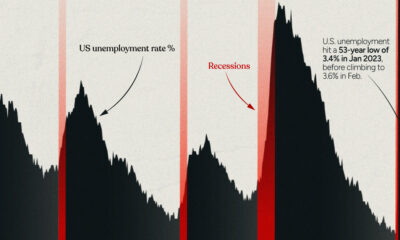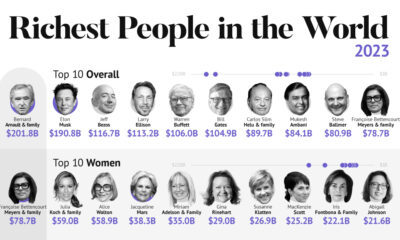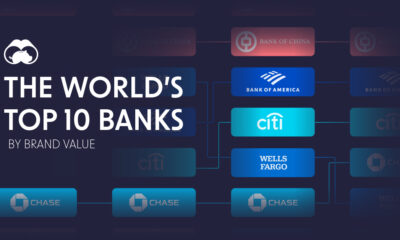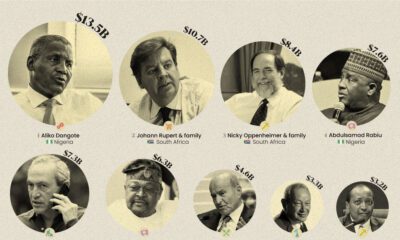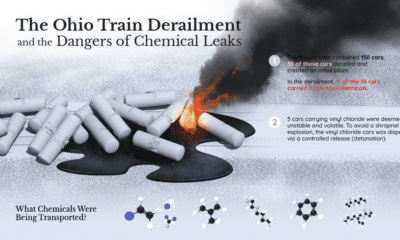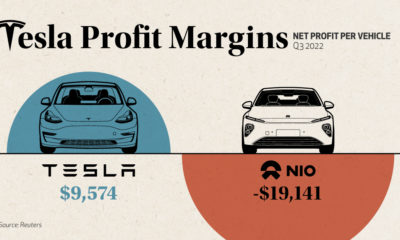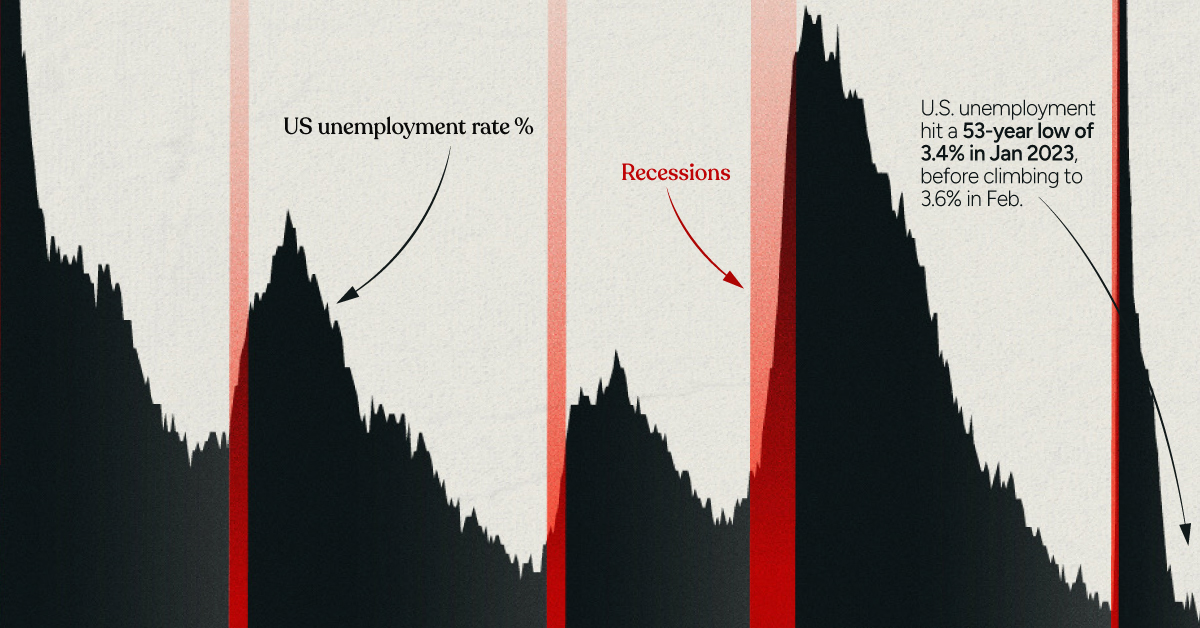This map from HowMuch.Net reveals the wealthiest billionaire in each U.S. state.
The Richest of the Rich
Billionaires are a constant across the United States. The only states that don’t house one of these high-net-worth individuals are: Alabama, New Mexico, North Dakota, Alaska, Vermont, New Hampshire, Rhode Island, and Delaware. Here’s a further breakdown that shows the wealthiest billionaire in each U.S. state: Among the richest of the rich in the U.S., most are men, but there are 10 female billionaires who are the wealthiest in their respective states. The runner up, Elon Musk, is worth $191.8 billion. The recent boom in Elon Musk’s net worth was due to the sharp rise in Tesla’s share prices. Recently, Elon Musk shifted his residence to the state of Texas, a move which is indicative of a larger trend of internal migration away from America’s most pricey urban areas.
Mind the Gap
Many of these individuals have actually become more wealthy during the COVID-19 pandemic, widening the existing gap of wealth inequality within the country. Together Jeff Bezos, Elon Musk, Mark Zuckerberg, Bill Gates, and Warren Buffet (the five richest American billionaires) experienced a collective 85% increase in their wealth since the pandemic took hold. This equates to an added $303 billion in wealth. In contrast, the median wealth of American households is about $121,700, and due to COVID-19, there has been a rising inability to cover bills and a risk of mass home loss in the country. on Both figures surpassed analyst expectations by a wide margin, and in January, the unemployment rate hit a 53-year low of 3.4%. With the recent release of February’s numbers, unemployment is now reported at a slightly higher 3.6%. A low unemployment rate is a classic sign of a strong economy. However, as this visualization shows, unemployment often reaches a cyclical low point right before a recession materializes.
Reasons for the Trend
In an interview regarding the January jobs data, U.S. Treasury Secretary Janet Yellen made a bold statement: While there’s nothing wrong with this assessment, the trend we’ve highlighted suggests that Yellen may need to backtrack in the near future. So why do recessions tend to begin after unemployment bottoms out?
The Economic Cycle
The economic cycle refers to the economy’s natural tendency to fluctuate between periods of growth and recession. This can be thought of similarly to the four seasons in a year. An economy expands (spring), reaches a peak (summer), begins to contract (fall), then hits a trough (winter). With this in mind, it’s reasonable to assume that a cyclical low in the unemployment rate (peak employment) is simply a sign that the economy has reached a high point.
Monetary Policy
During periods of low unemployment, employers may have a harder time finding workers. This forces them to offer higher wages, which can contribute to inflation. For context, consider the labor shortage that emerged following the COVID-19 pandemic. We can see that U.S. wage growth (represented by a three-month moving average) has climbed substantially, and has held above 6% since March 2022. The Federal Reserve, whose mandate is to ensure price stability, will take measures to prevent inflation from climbing too far. In practice, this involves raising interest rates, which makes borrowing more expensive and dampens economic activity. Companies are less likely to expand, reducing investment and cutting jobs. Consumers, on the other hand, reduce the amount of large purchases they make. Because of these reactions, some believe that aggressive rate hikes by the Fed can either cause a recession, or make them worse. This is supported by recent research, which found that since 1950, central banks have been unable to slow inflation without a recession occurring shortly after.
Politicians Clash With Economists
The Fed has raised interest rates at an unprecedented pace since March 2022 to combat high inflation. More recently, Fed Chairman Jerome Powell warned that interest rates could be raised even higher than originally expected if inflation continues above target. Senator Elizabeth Warren expressed concern that this would cost Americans their jobs, and ultimately, cause a recession. Powell remains committed to bringing down inflation, but with the recent failures of Silicon Valley Bank and Signature Bank, some analysts believe there could be a pause coming in interest rate hikes. Editor’s note: just after publication of this article, it was confirmed that U.S. interest rates were hiked by 25 basis points (bps) by the Federal Reserve.
